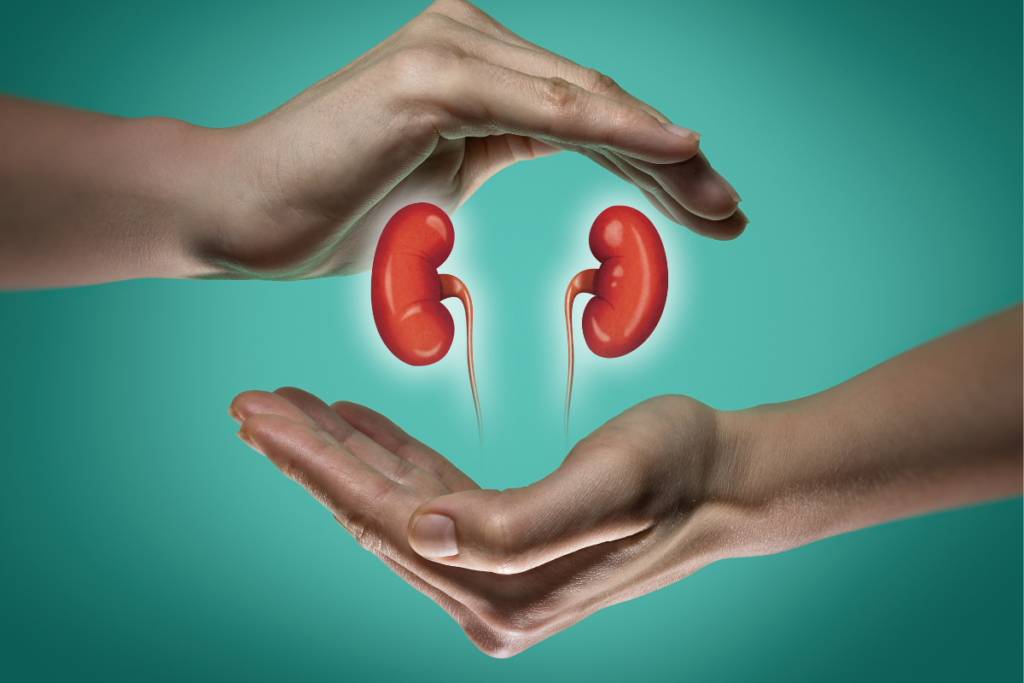With millions of people in India and around the world suffering from chronic kidney disease (CKD), it is important to understand how to detect it early and prevent further damage to your kidneys. This article explores the causes of CKD, symptoms, and treatment options for CKD as well as lifestyle changes to protect your kidneys. If left untreated, CKD is a silent, progressive condition that can lead to kidney failure.
What is Chronic Kidney Disease (CKD)?
The gradual decline in kidney function that affects the kidneys’ capacity to filter waste materials and fluids from the blood over time is known as chronic kidney disease or CKD. Waste builds up in the body as the kidneys fail to function, which can lead to serious side effects like renal failure.
Most cases of CKD are caused by diabetes, high blood pressure, or kidney infections, and they progress over months or years, often without noticeable symptoms until significant damage has been done.
What Causes Chronic Kidney Disease (CKD)?
1. Diabetes:
Damage to the kidney’s blood vessels can result from poorly managed blood sugar levels.
2. Hypertension (High Blood Pressure):
Elevated blood pressure causes strain on kidney tissues, leading to scarring and loss of function.
3. Genetic Factors:
Your risk of having chronic kidney disease (CKD) increases if kidney disease runs in your family.
4. Age:
Kidney function naturally declines as we age, and older adults are at higher risk.
Common Symptoms of CKD:
Because CKD symptoms often develop slowly and aren’t always obvious, many people don’t know they have it until it’s too late. Some common symptoms include:
● Fatigue or feeling unusually tired.
● Swelling in the legs, ankles, or feet.
● Frequent urination (nocturia), particularly at night.
● Loss of appetite, nausea, and vomiting.
● Back pain or pain in the sides.
● Shortness of breath, especially with physical activity.
Diagnosis of CKD:
To diagnose CKD, doctors usually perform:
● Blood tests to check for creatinine levels and glomerular filtration rate (GFR).
● Urine tests to detect excess protein, which indicates kidney damage.
● Ultrasound or CT scans to check for structural problems in the kidneys.
● Kidney biopsy: In some cases, a kidney biopsy is performed to identify the cause of damage.
Treating Chronic Kidney Disease:
CKD treatment can reduce the disease’s progression and control underlying factors such as diabetes or high blood pressure.
1. Lifestyle Modifications:
● Cut back on salt, maintain a healthy diet, and try to be physically active and fit to improve kidney health.
● Limit alcohol and quit smoking, both of which can exacerbate kidney problems.
2. Medications:
● ACE inhibitors or ARBs lower blood pressure and reduce protein in the urine.
● Diuretics to reduce swelling and fluid retention.
● Diabetes management medications to maintain blood sugar levels.
● Dialysis: For patients with advanced CKD, dialysis can help filter waste from the blood when the kidneys no longer can.
● Kidney Transplant: In end-stage renal failure, a kidney transplant may be necessary.
How to Prevent CKD from Progressing
The primary contributors of chronic kidney disease (CKD) include old age, diabetes, hypertension, and familial history. If you have any of these risk factors, regular kidney function monitoring is essential. Can I live with CKD? Many people with CKD can lead long, healthy lives if they manage their blood pressure, blood sugar, and kidney-friendly diet.
FAQs
How do I know if I have CKD?
Most people with CKD don’t experience symptoms in the early stages. Routine blood tests that measure creatinine levels and glomerular filtration rate (GFR) can help detect kidney problems early.
What are the major causes of CKD?
The primary causes of CKD include diabetes, hypertension, family history, and older age. If you have any of these risk factors, regular kidney function monitoring is essential.
CKD: Can I live with it?
Many individuals with chronic kidney disease (CKD) can lead long, healthy lives if the illness is identified early and properly treated with medication and lifestyle modifications.
modifications. What are the stages of CKD?
Stage 1 is the mildest of the five stages of chronic kidney disease (CKD), whereas stage 5 denotes renal failure necessitating dialysis or a kidney transplant.
Disclaimer
This information is for educational purposes and should not replace professional medical advice. Always consult your healthcare provider for personalised recommendations and treatment plans.
How HealthPil Can Help
At HealthPil, we connect you with expert nephrologists who can help you manage CKD effectively. Schedule a consultation for accurate diagnosis, personalised treatment plans, and ongoing monitoring to protect your kidney health.

